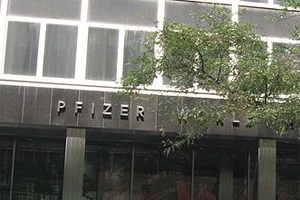Janssen and MSD’s blockbuster auto-inflammatory drug Remicade faces its first biosimilar threat in key European markets as Pfizer’s new acquisition Hospira launches its version of the treatment.
Remicade currently has licences in the EU for a variety of diseases, including: rheumatoid arthritis; Crohn’s disease; ulcerative colitis; ankylosing spondylitis; and arthritis psoriasis.
The treatment has been a massive earner for Janssen and its partner for the medicine MSD (which sells the drug in Europe), bringing in more than $8.5bn last year, making it one of the biggest selling treatments on the planet.
But its patents across much of Europe are set to expire and Hospira has today announced the launch of its new biosimilar. which will be called Inflectra (infliximab).
It will soon be available in “major European markets”, according to the firm, although does not yet include the UK. Inflectra is licensed for the same diseases as Remicade.
The European Medicines Agency had approved the medicine in 2013, but Hospira had to delay the launch of its biosimilar across key EU states after Janssen and MSD gained a paediatric licence extension for Remicade, extending its patent until February 2015.
The loss of this patent will also be a boost for Pfizer, which just this month bought Hospira in a deal totaling $17bn, giving it access to Inflectra’s future revenue.
Reducing costs, but increasing risk
Hospira, which will be offering its drug at a discounted price compared to Remicade (although an exact price has not been made public), says that biologics are responsible for some of the “biggest medicinal costs across Europe”, and that these high costs “can restrict access to treatment”.
As an example, it says that around 40% of rheumatoid arthritis patients in Europe have “severely restricted” access to biologic treatment.
It makes the case that Inflectra can offer a cost-effective alternative while maintaining the same quality, safety and efficacy as the reference product.
This however is a contentious point. A biosimilar is different to a normal generic drugs such as statins or antipsychotics, which can be manufactured by generic drugmakers with no R&D costs and relative ease.
But with biologics, such as Remicade and other auto-inflammatory medicines as well as oncology treatments, living tissue must be used to create the drug, meaning a limited amount of R&D is involved in creating a copycat version.
This has a cumulative effect on the price, which for a generic can be 70% – 90% cheaper than the original, whereas a typical biosimilar will be closer to around 20% – 30% cheaper to help offset the research costs.
Bioequivalent
There is also a question over what the regulator deems as ‘bioequivalent’ – this essentially means that the EMA has found the drug to be very similar to the treatment it is copying – but it may not be an exact replication of the originator drug.
A number of pharma firms have already pointed out that this could impact patient health if a biosimilar is not as efficacious as the original medicine.
There also remains the question over whether doctors in Europe will want to move onto biosimilars after years and sometimes decades of using the same original drug.
Some however are already pressing for its uptake, especially when the factor of cost savings to cash-strapped EU countries is thrown into the mix.
Professor Josef Smolen, chairman of the Division of Rheumatology at Medical University of Vienna, says: “Remicade has been authorised in the EU since 1999 and recorded European sales of almost €2bn in 2013.
The savings generated by introducing competition in the marketplace could save the European healthcare system millions of euros, with biosimilars expected to produce savings of over €20bn by 2020.”
Inflectra has already been launched in Central and Eastern Europe, and some smaller Western European markets due to earlier patent expiry.
Today other major European countries will now gain access to the medicine. These countries include: Austria, Denmark, France, Germany, Greece, Italy, Luxembourg, Netherlands, Spain and Sweden.
Hospira’s partner, the South Korean firm Celltrion, has also submitted an application to the FDA for a biosimilar version of infliximab, although the path to approval here may prove much more difficult as the US regulator is about five years behind the EMA when it comes to assessing biosimilars.





